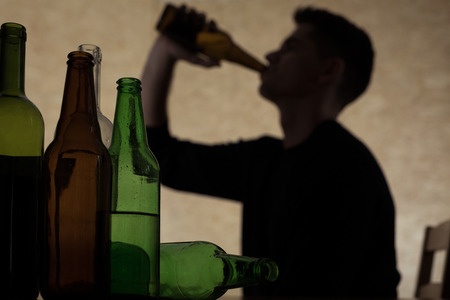HelpGuide.org reports that parents and other adults dealing with teens need to understand the following four key points: 
- More than half of American youths ages 12 to 20 have tried alcohol. Girls are nearly as likely as boys to experiment with drinking.
- Underage and binge drinking is risky and can lead to car accidents, violent behavior, alcohol poisoning, and other health problems.
- Drinking at a young age greatly increases the risk of developing alcohol problems later in life.
- Talking to kids early and openly about the risks of drinking can help reduce their chances of becoming problem drinkers.
Alcohol is a powerful, mood-altering drug, according to NIAAA (National Institute on Alcohol Abuse and Alcoholism). It not only affects the mind and body in unpredictable ways, but teens lack the judgment and coping skills to handle alcohol wisely. Because of this:
- Alcohol-related traffic crashes are a major cause of death among young people. Alcohol use also is linked with teen deaths by drowning, suicide, and homicide.
- Teens who use alcohol are more likely to be sexually active at earlier ages, to have sexual intercourse more often, and to have unprotected sex than teens who do not drink.
- Young people who drink are more likely than others to be victims of violent crime, including rape, aggravated assault, and robbery.
- Teens who drink are more likely to have problems with school work and school conduct.
- The majority of boys and girls who drink tend to binge (5 or more drinks on an occasion for boys and 4 or more on an occasion for girls) when they drink.
- A person who begins drinking as a young teen is four times more likely to develop alcohol dependence than someone who waits until adulthood to use alcohol.
How to talk to your teens about alcohol?
It does not have to be difficult to talk with teens about alcohol abuse. Every day there are news stories with references to alcohol. These stories can be the basis to begin the conversation, according to DrugFree.org.Here is some general advice from Education.org about talking with teens about drinking:
- Ask open ended questions.
- Control your emotions.
- Show that you care and understand.
- Promote open communication.
- Discuss real-world consequences that teens can relate to. You may lose your place on the team or your scholarship.
- Talk about the consequences of drunk driving. You may get your license revoked. It could show up on your record when you are applying for a job. You could hurt someone else.
- Emphasize why teens especially shouldn’t be drinking. Brains are still developing until the mid-20’s.
In addition to talking to your teen, consider other strategies to prevent underage drinking from the Mayo Clinic:
- Develop a strong relationship with your teen. Your support will help your teen build the self-esteem he or she needs to stand up to peer pressure — and live up to your expectations.
- Know your teen's activities. Pay attention to your teen's plans and whereabouts. Encourage participation in supervised after-school and weekend activities.
- Establish rules and consequences. Rules might include no underage drinking, leaving parties where alcohol is served and not riding in a car with a driver who's been drinking. Agree on the consequences of breaking the rules ahead of time — and enforce them consistently.
- Set an example. If you drink, do so only in moderation and explain to your teen why it's OK for adults to drink responsibly. Describe the rules you follow, such as not drinking and driving. Don't serve alcohol to anyone who's underage.
- Encourage healthy friendships. If your teen's friends drink, your teen is more likely to drink, too. Get to know your teen's friends and their parents.
- Offer Them a Way Out. Promise to pick him or her up anytime, anywhere, no questions asked.
“If your child is involved in an alcohol-related accident, contact the experienced lawyers at Spivey Law Firm, Personal Injury Attorneys, P.A. to determine your rights,” said Hurt By Drunk Driver Attorney, Randall Spivey.
Hurt By Drunk Driver Attorney, Randall L. Spivey is a Board Certified Trial Attorney – the highest recognition for competence bestowed by the Florida Bar and a distinction earned by just one (1%) percent of Florida attorneys. He has handled over 2,000 personal injury and wrongful death cases throughout Florida. For a free and confidential consultation to discuss your legal rights, contact the Spivey Law Firm, Personal Injury Attorneys, P.A., in Lee County at 239.337.7483 or toll free at 1.888.477.4839,or by email to Randall@SpiveyLaw.com. Visit SpiveyLaw.com for more information. You can contact Spivey Law Firm, Personal Injury Attorneys, P.A.in Charlotte County at 941.764.7748 and in Collier County 239.793.7748.


